Every child matters
At NestingPlay, we believe that every child matters. Our team is made up of passionate and dedicated professionals from all sorts of backgrounds, all sharing the same goal: to see, understand, and support each child just the way they are. No matter where they come from or what their abilities might be, we design and run our projects with this in mind.
Our focus is to give all children real attention, acceptance, and support — especially those who might have a tougher start in life.
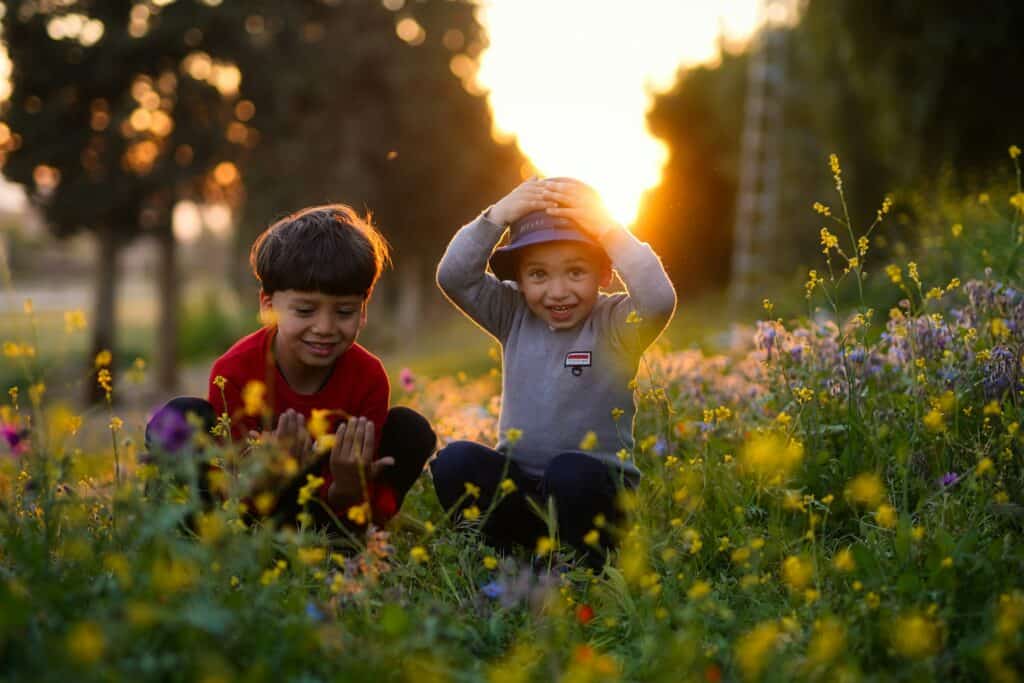
Photo: Fares Hamouche on Unsplash
Kenya
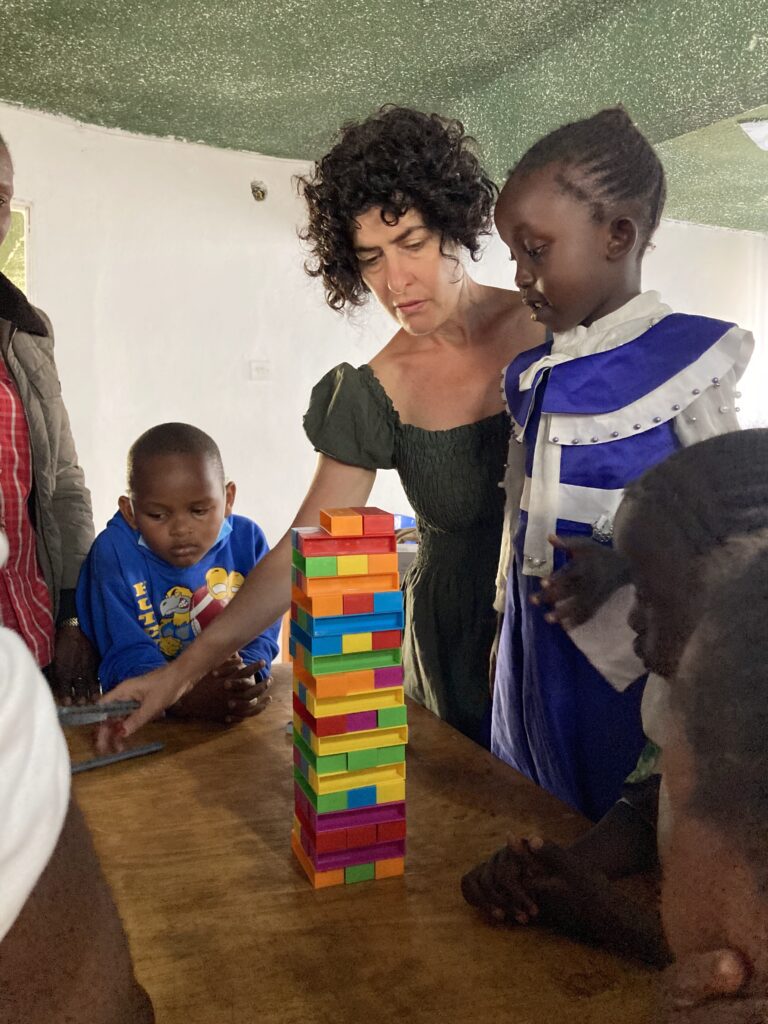
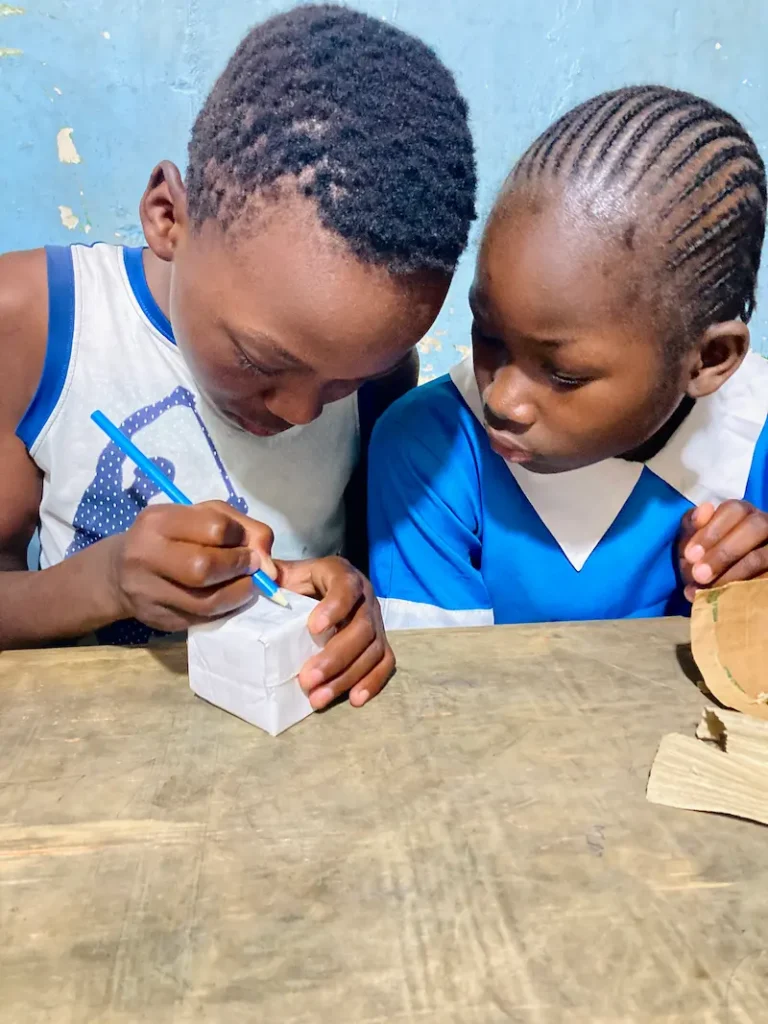
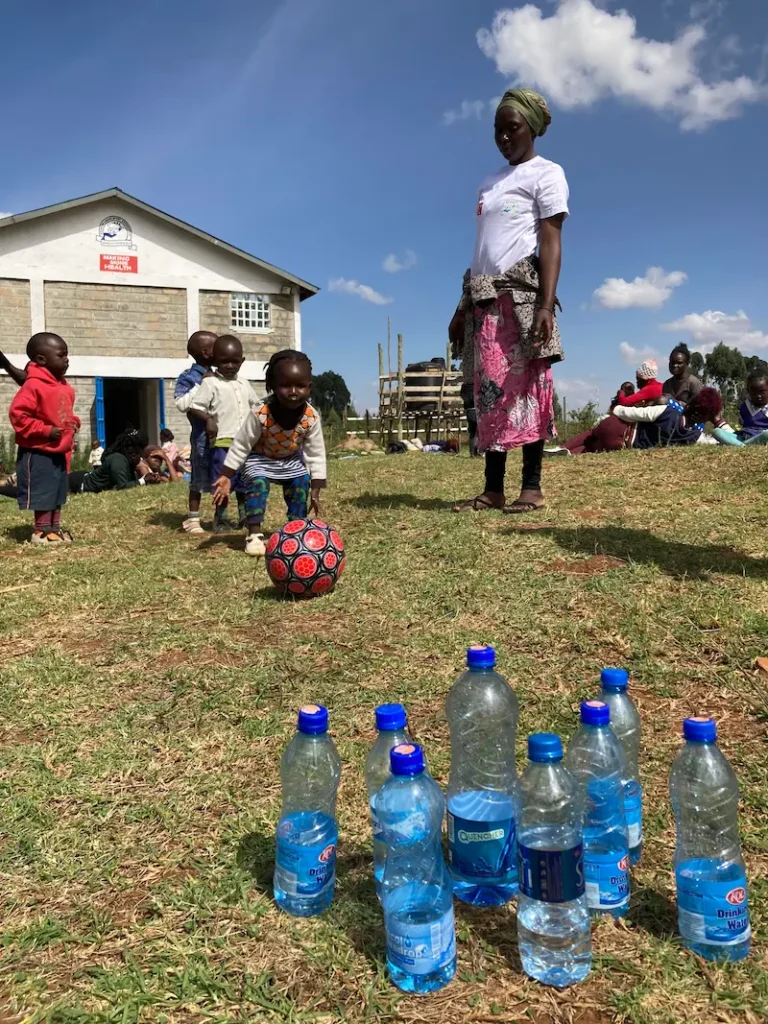
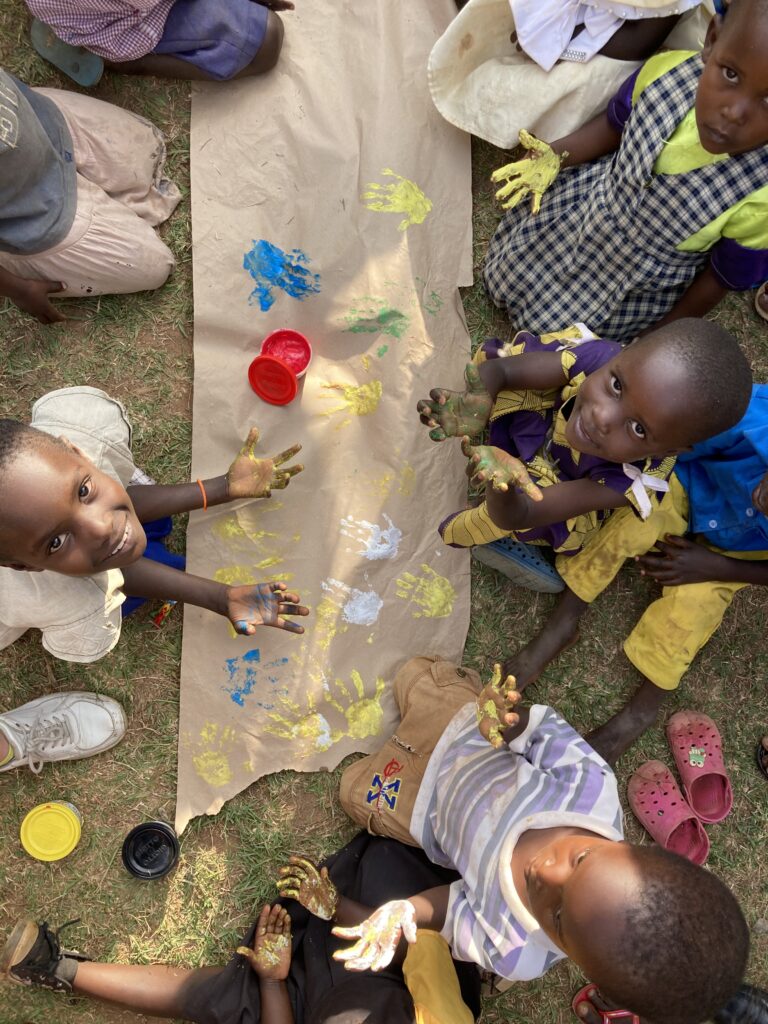
NestingPlay has been active in Kenya since 2020. Since then, we've been dedicated to giving teachers and parents tools that help them better understand and support children—especially those who are harder to reach or engage. Play has a key role inthis—it's how children connect, observe, and grow, regardless of their background or where they come from.
We work in some of Kenya's poorest areas, where children often face high stress, developmental delays, and limited chances to thrive. These tough conditions almost inevitably lead to more difficulties, increasing stress and slowing down progress.
Since we started, we've worked closely with teachers, teaming up with the Ministry of Education in Bungoma County, the local government in Kiambu County, and various local schools to make a difference. Our goal is to show teachers how powerful play can be—both as a teaching tool and a way to help them understand children better, especially those who might need extra support for different reasons.
In 2023, working together with the PENDO International Project, we organized a teacher training at a school near Nairobi.
The main focus was to help the school adopt a more child-centered way of teaching. We also put a lot of emphasis on supporting parents. Through our partnerships with Making More Health and Boehringer Ingelheim, we've set up two Parent Centers, and a third one is on its way as part of our ongoing work with PENDO. These centers are safe, communal places where parents are given tools, knowledge, and get support to understand their children better—especially through play. They learn how to encourage their children to play, grow, connect, and catch up if they’re behind.
Currently, in Kenya, we’re focusing on the areas of Webuye East, Bungoma North, Tongaren, and the bigger Nairobi region. In the long run, we want to open more Parent Centers and build more local partnerships all across the country.
Our partners include Core Health and Wealth International, PENDO International Project, the Bungoma County Government, and the local Ministry of Education.
India
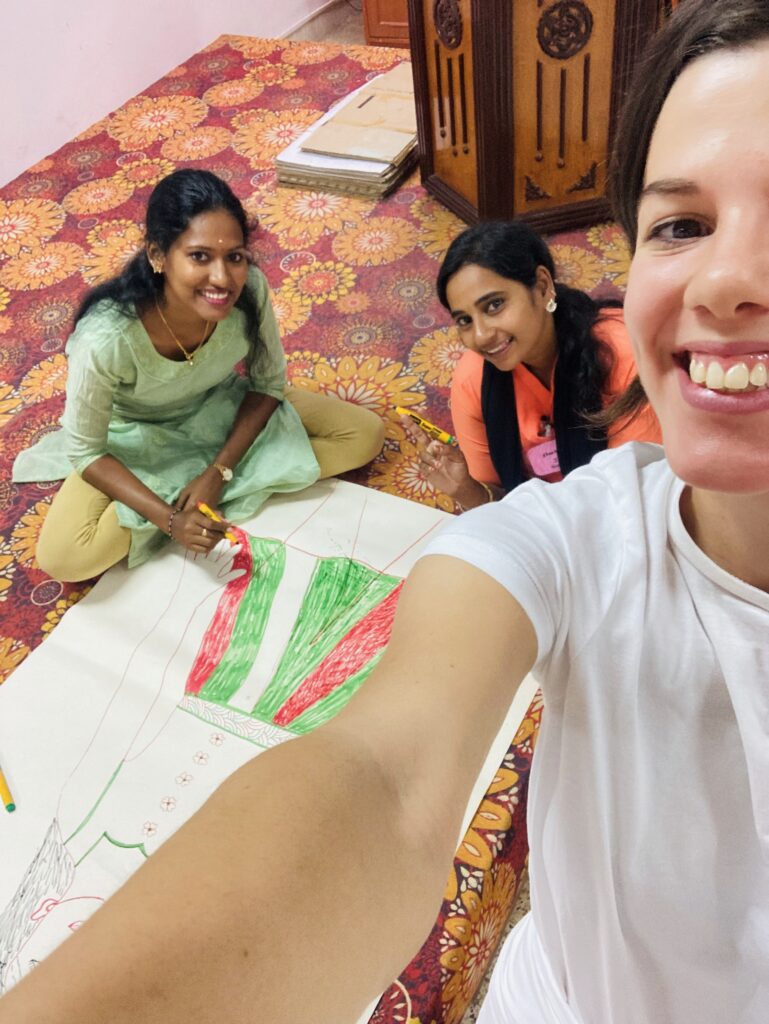
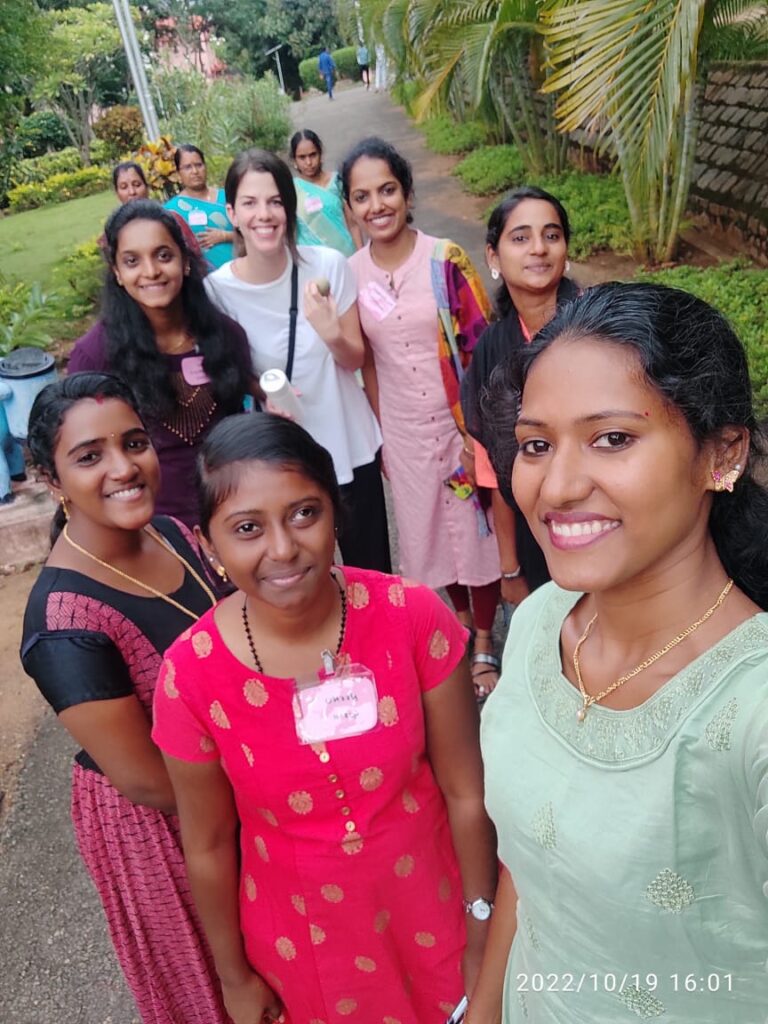
NestingPlay is also present in India with its early childhood education and development program. Similar to our work in Kenya, we team up with local schools, teachers, and parents—working together to give every child a chance to grow.
We introduce play-based learning through our teacher training classes at public centers called anganwadis—always customizing our methodology to fit local needs. We show teachers how to make their own toys, even using recycled materials, and give them ideas on how to get children actively involved, especially those who might be falling behind.
Same as in Kenya, we run a Parent Academy where parents learn how to better connect with their children. Together we explore the crucial role of play in development, teach them about key milestones, and help them spot early signs if their child needs extra support—so they can seek professional help in time.
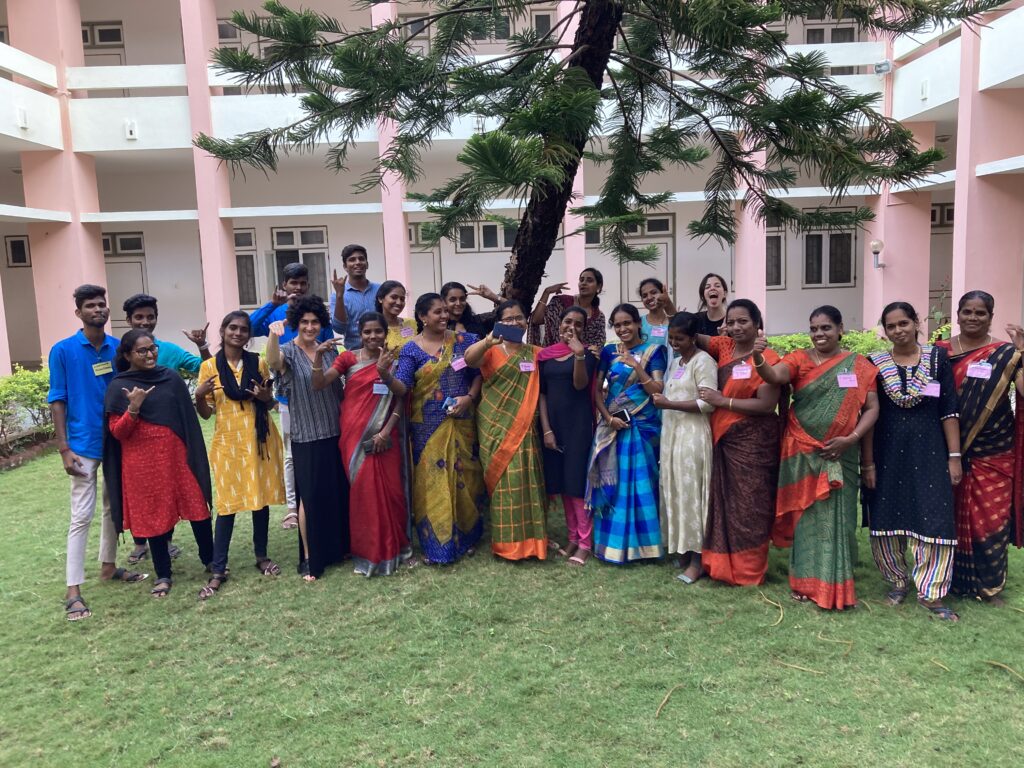
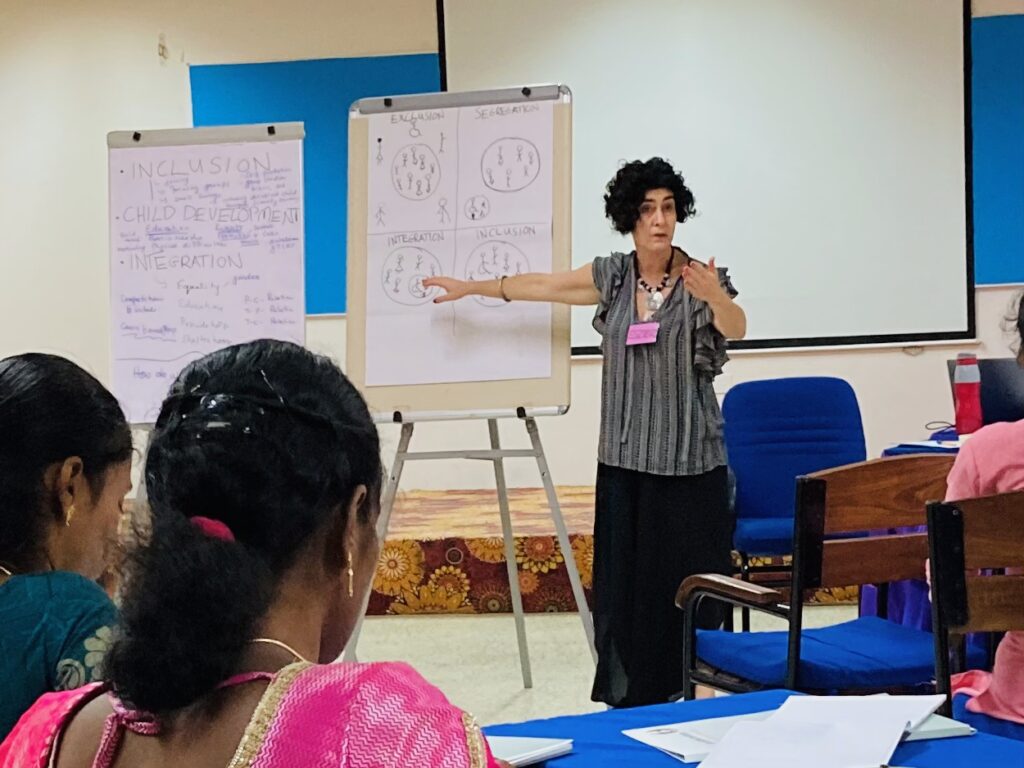
Refugee projects
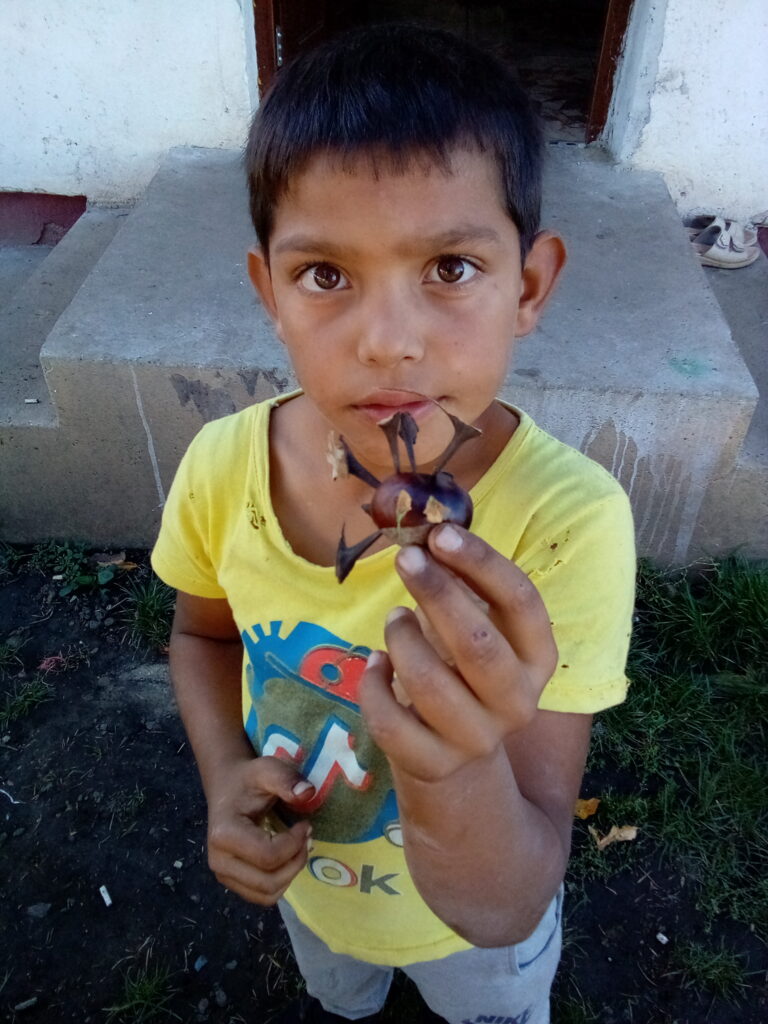
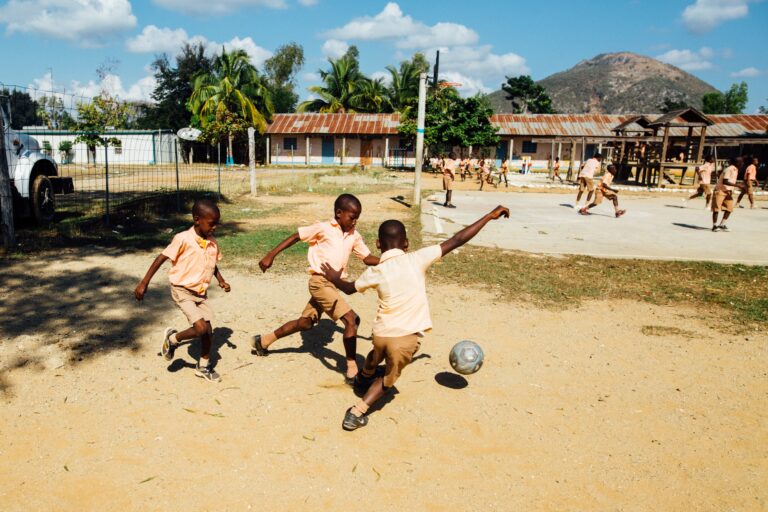
Childhood trauma can take on many forms, but they all have one thing in common—they all leave a lasting mark on a young person’s brain and a profound impact on their development.
Fleeing from war and leaving your home is one such trauma, and it can have deep, long-lasting effects, affecting children especially severly. These young people have a greater need for safety, support, and targeted help.
Since February 24, 2022, over six million people have been forced to leave their homes and seek refuge in nearby countries—most of them women, children, older folks, and people with disabilities.
Building on our NestingPlay methodology we team up with social workers to run playful, development-focused sessions for children living in refugee camps. We also organize after-school programs, preschool activities, and summer camps. Our main goal is to help lessen the pain caused by war and losing their homes and to make sure they don’t fall behind in their development or start having behavioral issues.
To do that, it’s essential to provide them a safe space and programs that support their growth and emotional well-being.
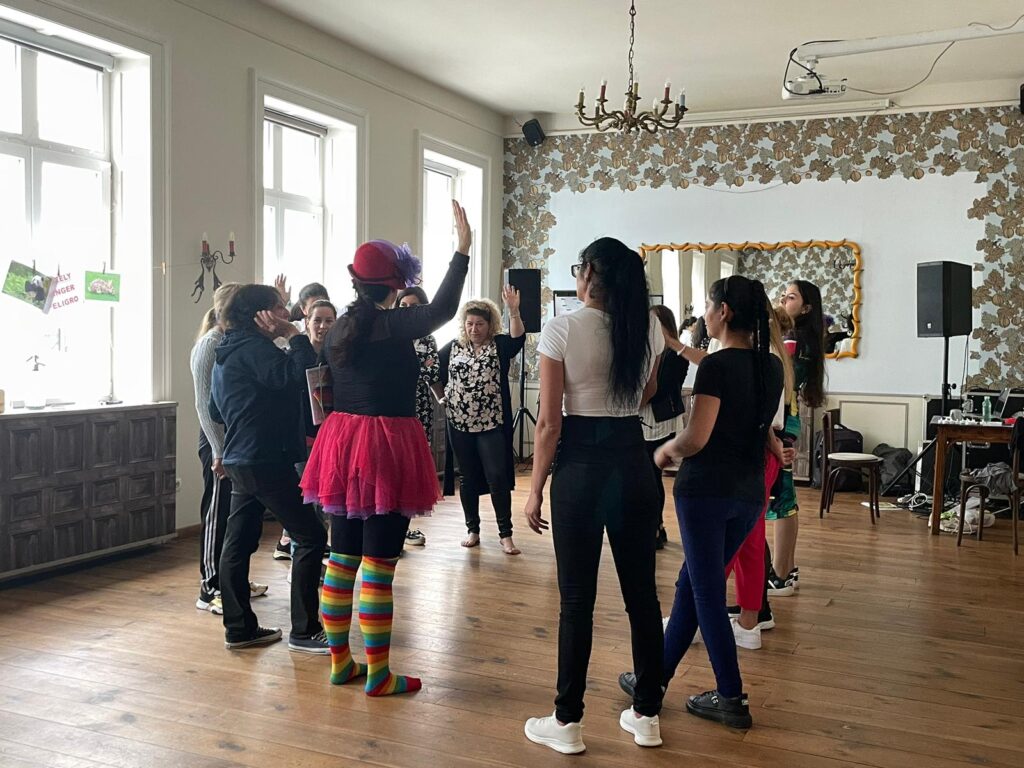
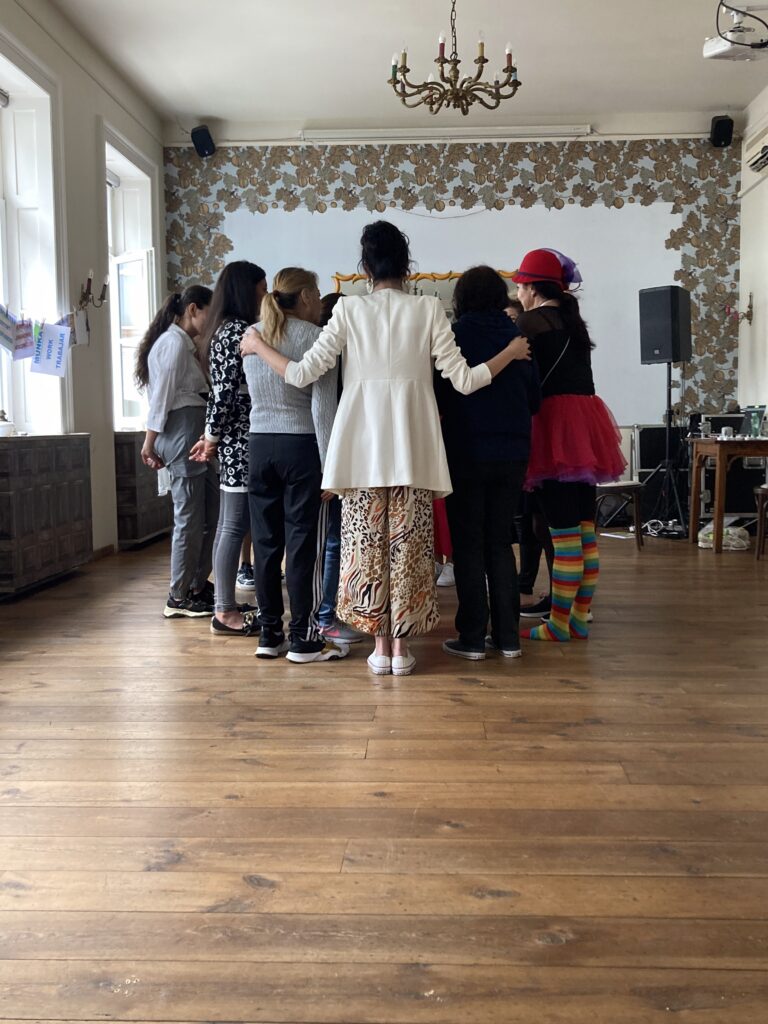
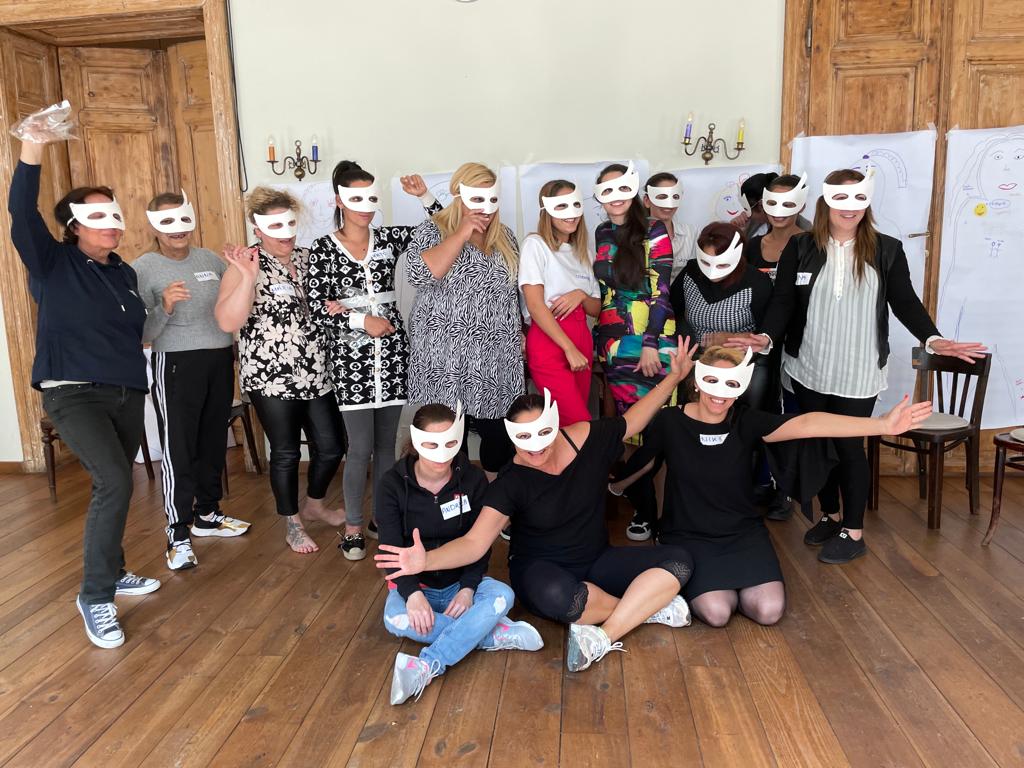
The Inclusion in Time of Exclusion project is part of Erasmus+ and aims to promote social inclusion for groups facing disadvantages, including migrants, refugees, and Roma communities. The project’s main objectives are to get parents more actively involved in their children’s education and help them build skills to self-organize and participate actively. NGOs from Germany, Spain, Italy, Hungary, and Romania are teaming up to develop new methods, run training sessions, and create digital content. They’re also providing training for teachers and social workers to make inclusive education practices more widely available. The project also wants to emphasize good practices on social inclusion and contribute to discussions at EU level in the fields of education and migration.
This initiative builds on a previous Erasmus+ project called Parents for Inclusion , which supported organizations working with refugees. That project showed how to help refugee children improve their school skills by using the NestingPlay Method , enabling them to learn through play. Our goal was to show that play can be a powerful tool for learning, especially when personalized to each child's unique needs and situation.
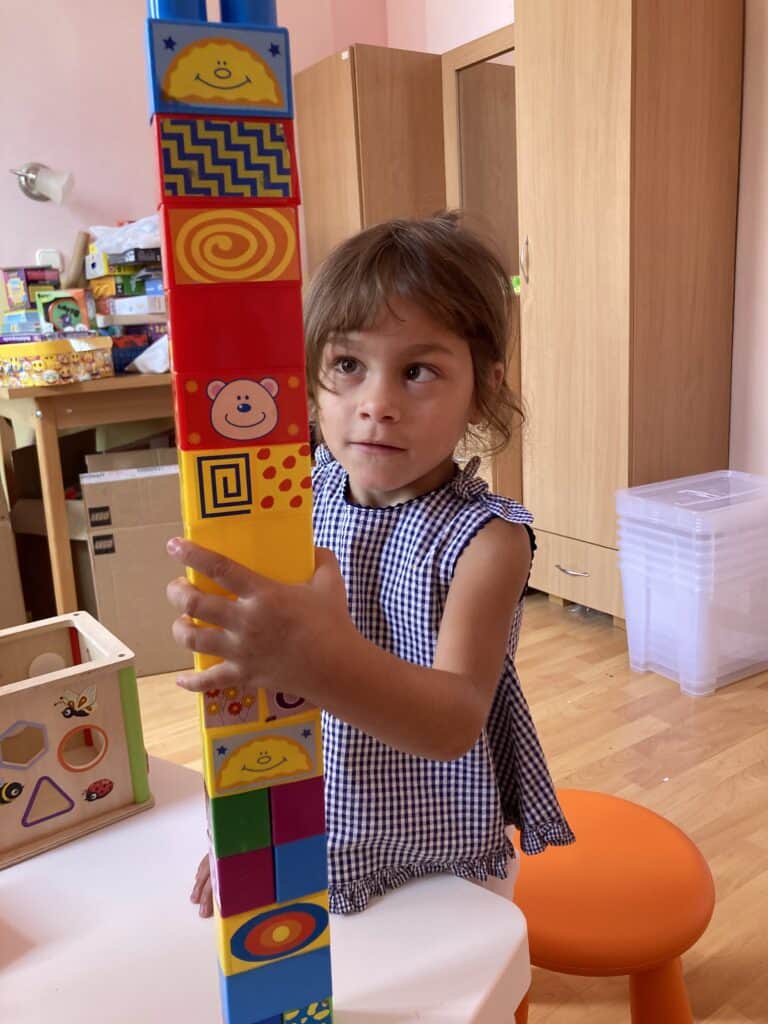
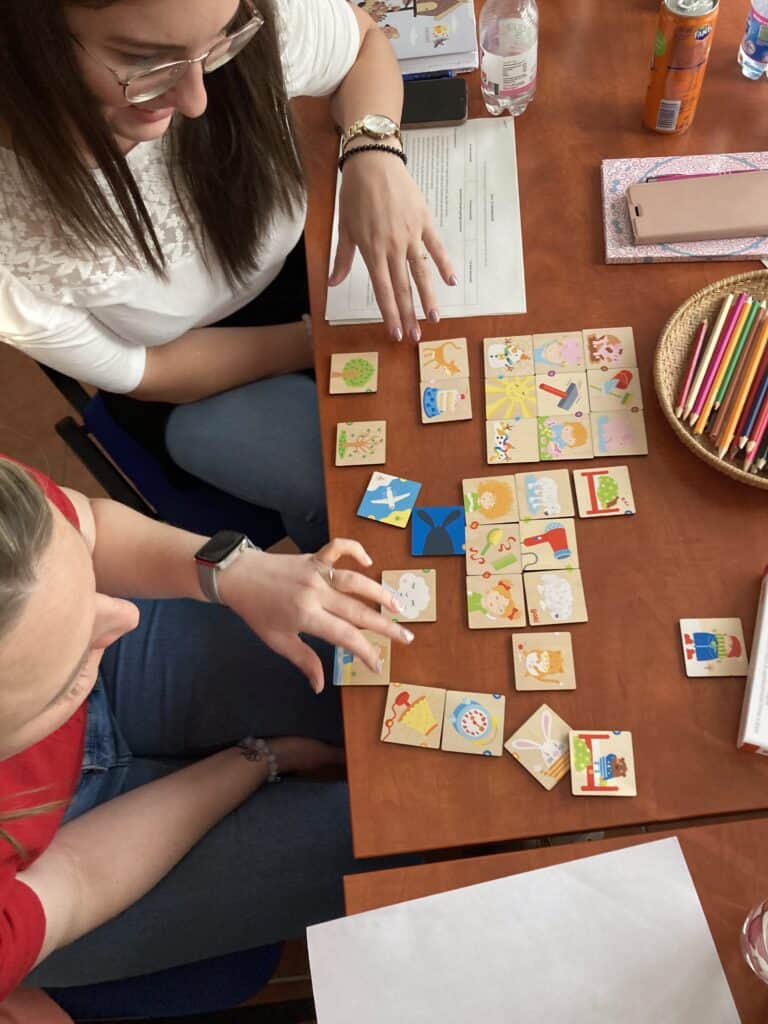
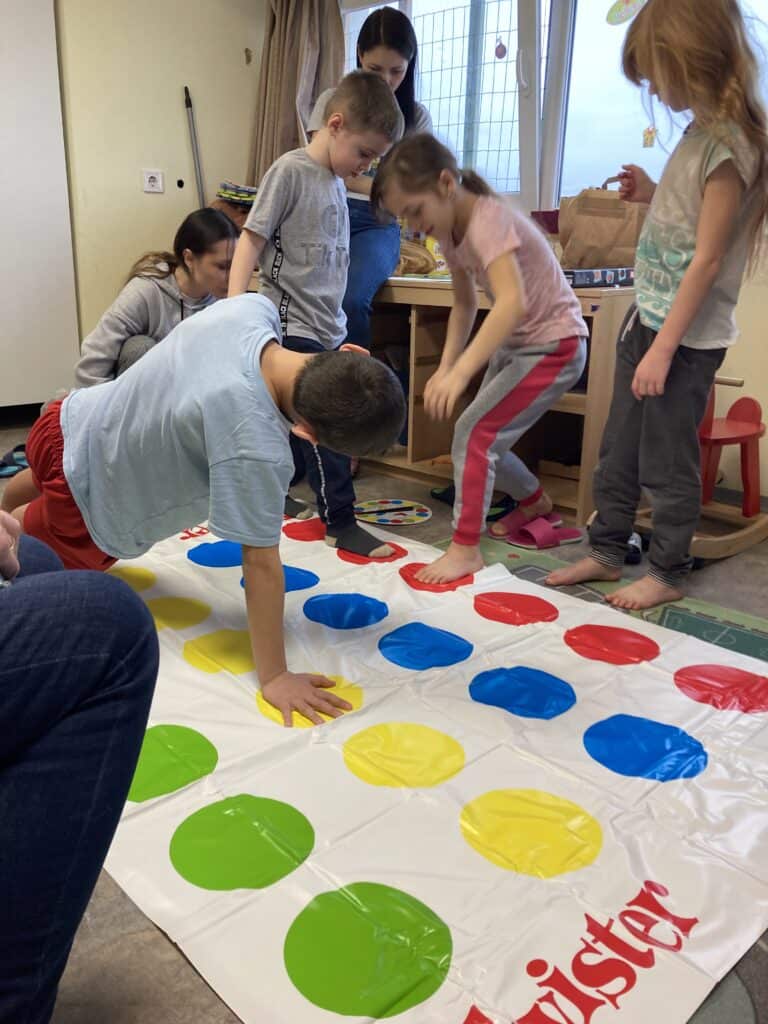
AMNA is an international organization that brings together and supports groups working with refugees. After exploring their methods, we combined them with the NestingPlay Method to develop practical training sessions aimed at helping parents and teachers better support children who are harder to engage with. The focus of the program was on regulation—we emphasized the conscious and effective use of sensory tools, in particular.
Furthermore, we've started training organizations within the AMNA network on the Healing Through Play method as well. This approach is more about developing skills than therapy; rather than focusing on changing behaviors or emotions directly it targets the core developmental areas that need support instead. Healing Through Play módszerre. Ez a megközelítés nem terápiás jellegű, inkább az elmaradt készségekre koncentrál, és nem a viselkedés vagy érzelmek kezelésére, hanem azok alapvető fejlődési aspektusaira helyezi a hangsúlyt.
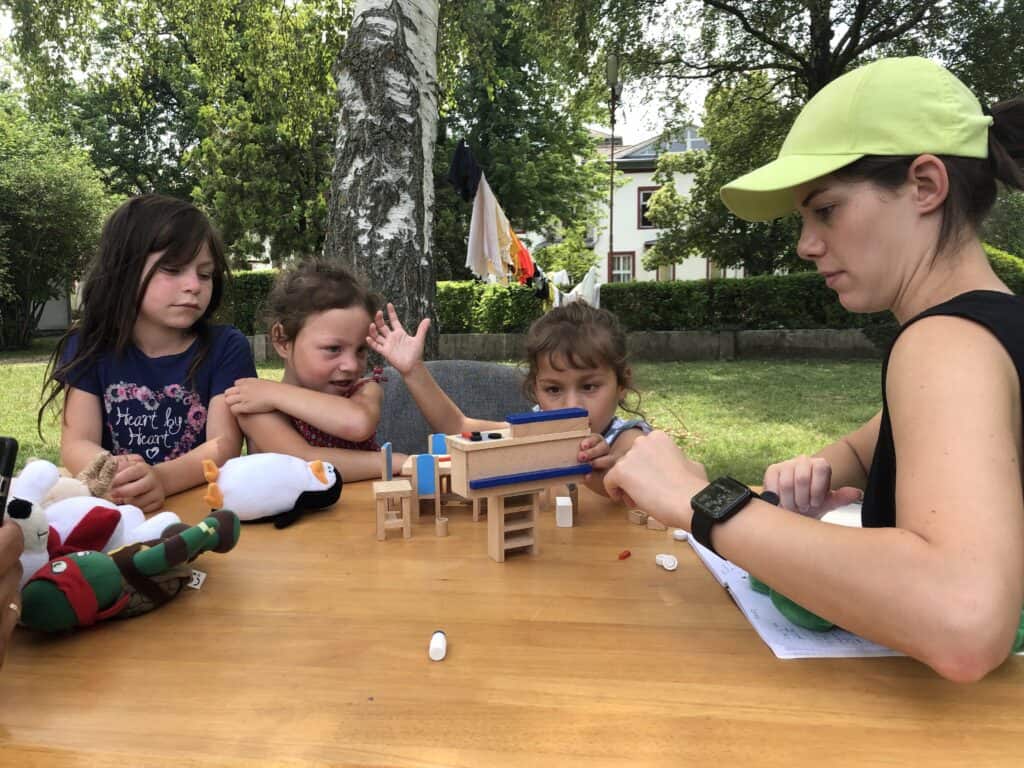
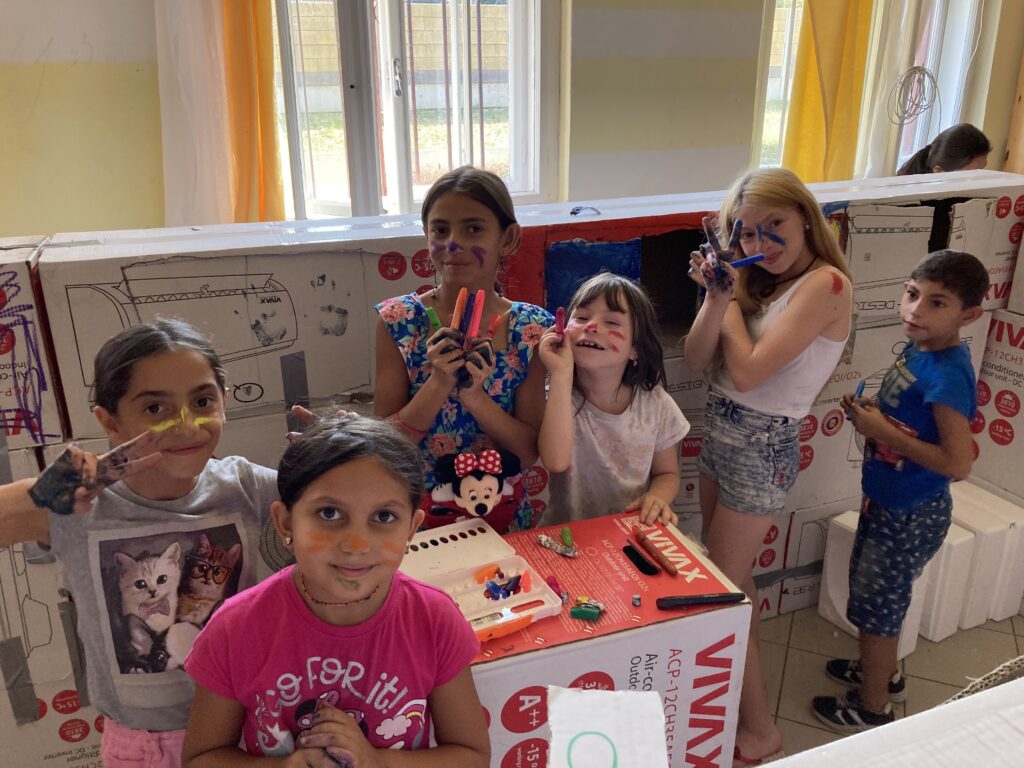
In response to the ongoing war in Ukraine, NestingPlay has rolled out a program aimed at supporting refugee children and mothers with their mental health, development, and safety. Working closely with local partners, we've set up safe spaces in cities like Budapest, Szombathely, Veszprém, and Kisvárda, where children are supported through playful developmental activities, after-school programs, summer camps, and language classes. We also help parents and caregivers by sharing positive parenting tips, offering cultural guidance, and connecting them to accessible services.
Our bilingual, trained animators have reached over 400 women and girls affected by the crisis, covering important topics such as violence prevention and providing initial psychological support. While we faced some challenges along the way, like finding the right spots or building local communication channels, we've stayed flexible. Building on our past experiences, we're continuing to work toward helping those fleeing the war find a sense of community, support, and hope.

At the request of the Municipality of Budapest, NestingPlay took charge of running the children’s programs at the Fonyód Refugee Shelter in response to the increased number of children arriving due to the war in Ukraine. Throughout the project, we supported Roma refugee families by helping them with their everyday needs, getting them integrated into the school system, and making them feel more part of the local community.
With support from United Way, we set up developmental activities, after-school support, summer camps, and community events for children from 3 to 14 years old. We especially focused on supporting the students aged 7 to 14, helping them with homework and boosting their learning skills—even in the absence of dedicated study rooms. Our recreational programs offered a relaxed environment where kids could learn informally, experience different cultures, and connect with others. Parents were involved too, with regular discussions and counseling sessions that encouraged them to help their children learn and grow. The program followed a holistic approach—aiming to improve children’s well-being and growth.
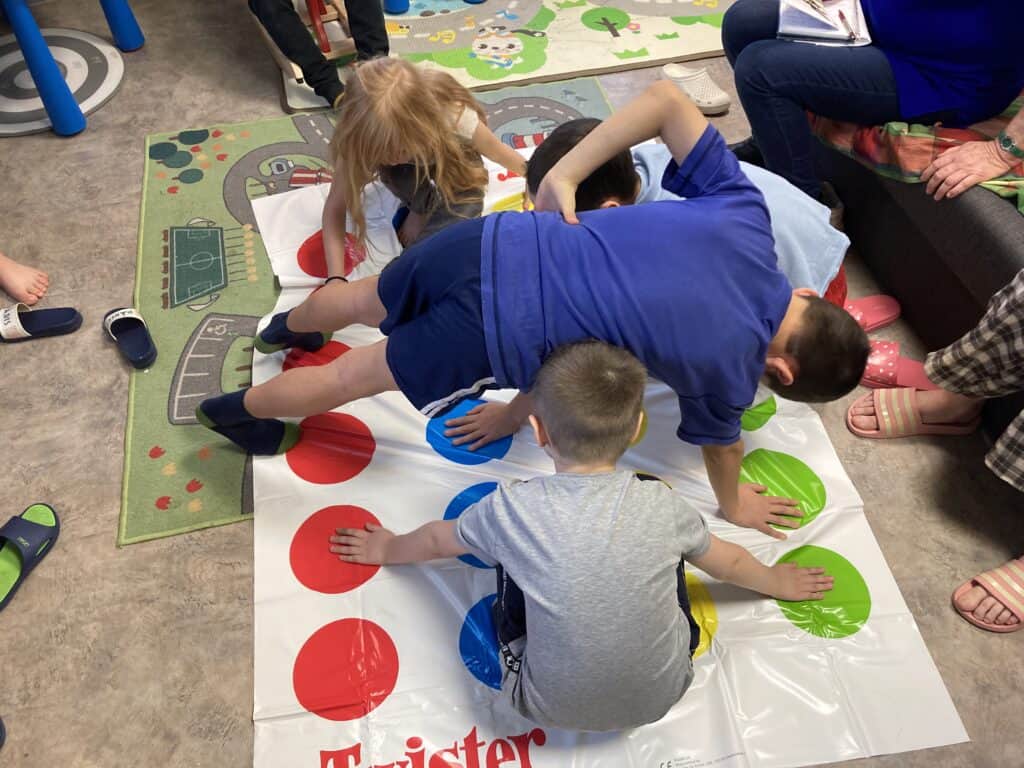
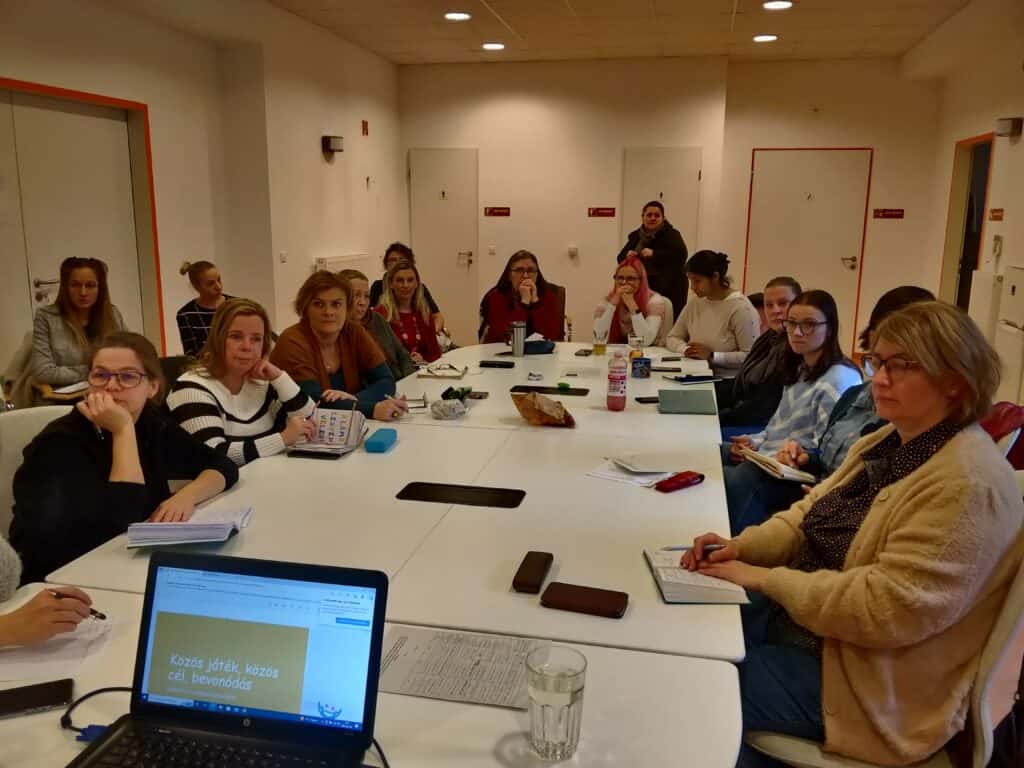
With support from UNICEF and in partnership with the Kincs-Ő Foundation, NestingPlay rolled out a program focused on the early development and support of refugee children and vulnerable families arriving in Hungary due to the war.Since the conflict in Ukraine erupted in February 2022, over six million people have had to leave their homes, and by the end of our project in November 2023, almost four million of those refugees had come to Hungary. Our main goal was to support early childhood development. We searched for ideal locations for developmental services, boosted the skills of professionals in play-based methods, and organized playgroups and parent support meetings. The goal was to create a caring and supportive community for teachers and parents alike. The program also included training for kindergarten teachers, guided play days for children, and events to help parents learn and connect. Throughout this challenging time, our aim was to help young children grow in a healthy way and to strengthen families amidst so much uncertainty.
Football
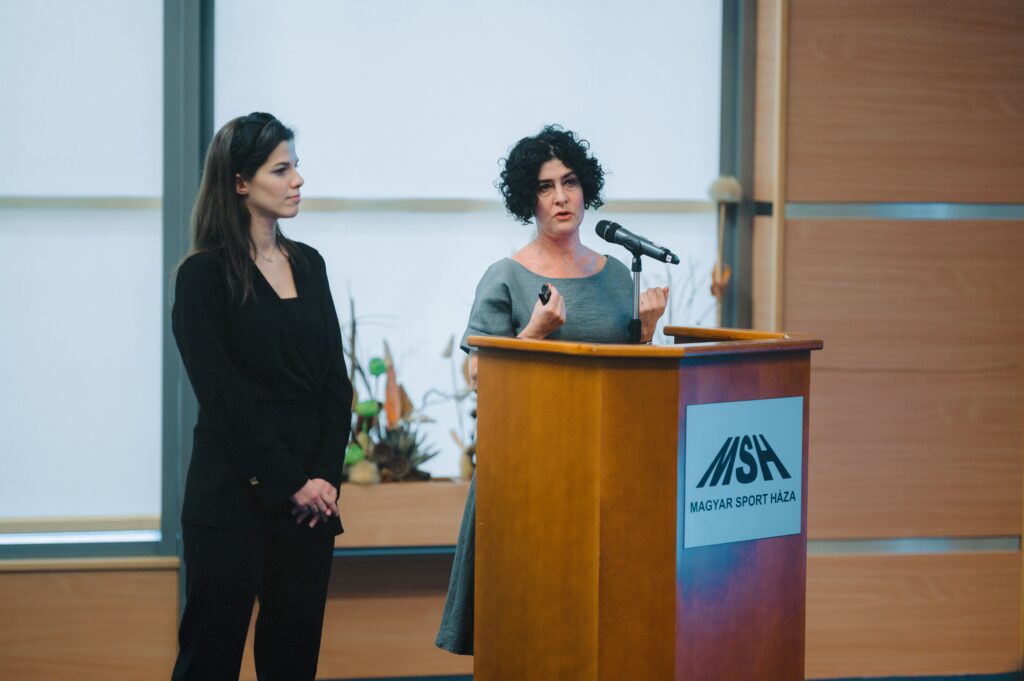
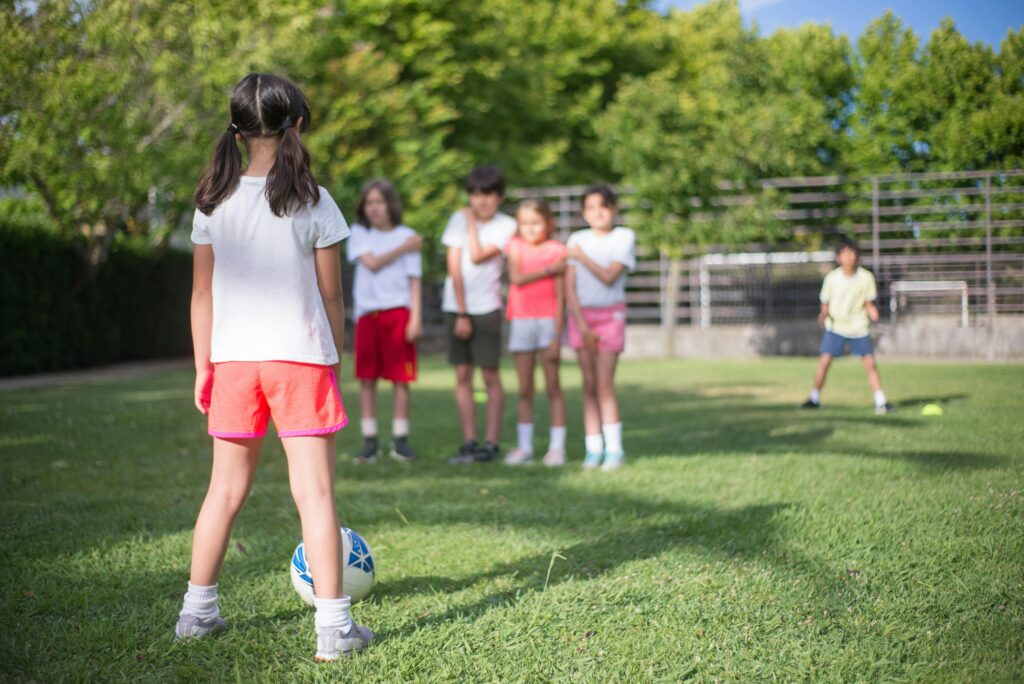
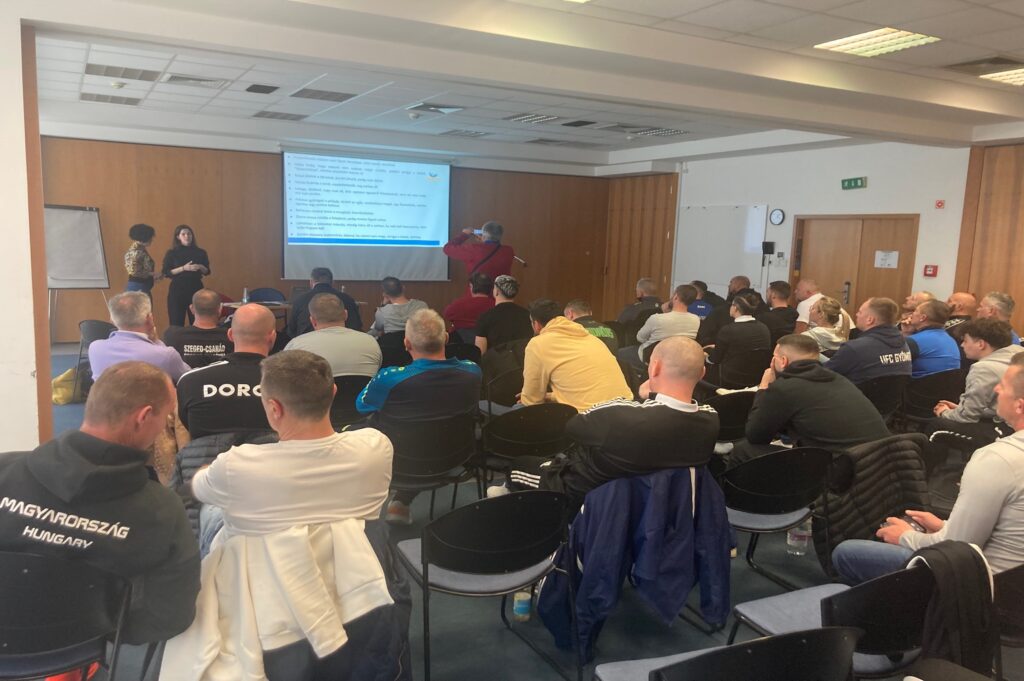
The goal of football is to offer an inclusive experience for every child, no matter what language they speak, where they come from, or what their abilities are. Playing football helps children feel like they belong, grow as individuals, learn how to work as a team, and experience the happiness that comes from achieving something together. Being on a team teaches children how to cooperate and persevere, while coaches help them find their unique strengths. Sports can also help reduce stress, boost coordination, improve stamina and brainpower, and lower drop-out rates.
Statistics show that these days, more and more children are facing challenges like attention issues, sensory sensitivities, or trouble understanding speech. These challenges are often present from birth, but can also result from long periods of stress or trauma. It’s important to realize that these difficulties can affect any child, regardless of their background or family situation.
Because of these challenges, many children find it hard to join group play or team sports, even though activities like these can really help them feel more connected and part of a community. However, many coaches lack the right tools or support to create a truly inclusive environment.
As a result, children who lag behind in certain areas,including refugee children, sometimes get left out. Our goal is to change this practice.
Our football projekt’s aim is to adapt a proven method called NestingPlay—already successful in school— to football . The program is designed for children aged 6 to 13, the ’golden age’ for learning, especially for those who might have undiagnosed learning, behavioral, or social challenges. Since spring 2024, we’ve been working with the Hungarian Football Federation and the Methodological Institute, partnering with six football clubs that support both amateur and talented young players. The goal of this collaboration is to create football environments where every child can find their place and thrive.
